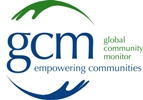Royal Dutch Shell: Use your profits to clean up your mess
Published 01-31-07
Submitted by Global Community Monitor
SAN FRANCISCO, CA (USA) / AMSTERDAM (The Netherlands) / LONDON (UK) - January 31, 2007 - A new report, launched the day before oil giant Shell announces its 2006 annual profits (on 1 February 2007) calls on Shell to use the profits to begin cleaning up damage it has caused to communities and the environment. The report offers proposals and figures for where and how Shell should repair some of the damage it has caused in nine communities around the world.
The report is published by the Shell Accountability Campaign, a network of environmental, human rights and community groups, including the Global Community Monitor. The coalition has analyzed existing information and carried out new research to work out costs of cleaning up damage Shell has caused at specific locations in Nigeria, Russia, South Africa, Curacao, Brazil, the USA, the Philippines, Ireland and Barbados. The new report, "Shell: Use your profits to clean up your mess", can be downloaded at www.shelladvert.org.
"Despite its massive public relations investments , Shell continues to be among the worst oil companies when it comes to the brutal reality of how it operates on the ground. Shell’s neighbours have had their health, their livelihoods and their communities destroyed by the company. Today’s report and full page advertisements however prove that public support is growing for this campaign to hold Shell accountable," said Denny Larson, Global Community Monitor, an international human rights and Environmental Justice organization.
Full page advertisements calling on Shell to use its profits to clean up its mess are also appearing in British newspaper The Guardian and Dutch newspaper de Volkskrant on 1 February. The adverts are signed and financially supported by more than 7.000 people from across the world through a dedicated website: www.shelladvert.org.
In Nigeria, a country devastated by the impacts of oil extraction, Shell should begin by immediately stopping illegal gas flaring at a cost of about $1.55 billion. It should also start reserving money for clean up of oil spills and compensating the Ijaw communities, which will cost at least $11.5 billion.
In Sakhalin Island, Russia, a Shell consortium is constructing a controversial oil platform and pipeline which threatens critically endangered whales, other wildlife and habitats as well as the local fishing industry. An initial cost of repairing environmental damage has been estimated at $376 million.
In Durban, South Africa, local communities are calling on Shell to replace the old refinery and pipelines which would cost approximately $6 billion. The existing ageing infrastructure means that accidents and leakages happen on a regular basis. The local community suffers from health problems due to air pollution.
In Ireland, where Shell is building a controversial on shore gas refinery and high pressure gas pipeline in an unstable peat bog area and protected coastline, the company could choose to listen to the local community’s concerns and refine the gas at sea rather than on land. This reduction of damage and risk would cost Shell approximately $736 million.
"Shell's sky high profits over 2006 are made at the expense of people and the environment. We present here the unpaid bills. Jeroen van der Veer should acknowledge his responsibility for this and allocate money to clean up the mess he made," stated Anne van Schaik, Milieudefensie (Friends of the Earth Holland).

Global Community Monitor
Global Community Monitor
The Global Community Monitor (GCM) is an environmental justice and human rights non-profit that empowers industrial communities to recreate a clean, healthy, and truly sustainable environment. GCM was created to provide hands-on tools for impacted communities to monitor their own neighborhoods. Based on community knowledge and new data, industrial neighborhoods can increase their power to reduce health threats on their own terms. GCM works with communities to hold major corporations accountable in the U.S and throughout the world. Through GCM, local community struggles are linked and their efforts multiplied. GCM provides in-depth site assessments and research; trainings for your community on how to conduct effective environmental monitoring; and on-going technical assistance on how to use your monitor data to win pollution reductions and accountability.
More from Global Community Monitor

